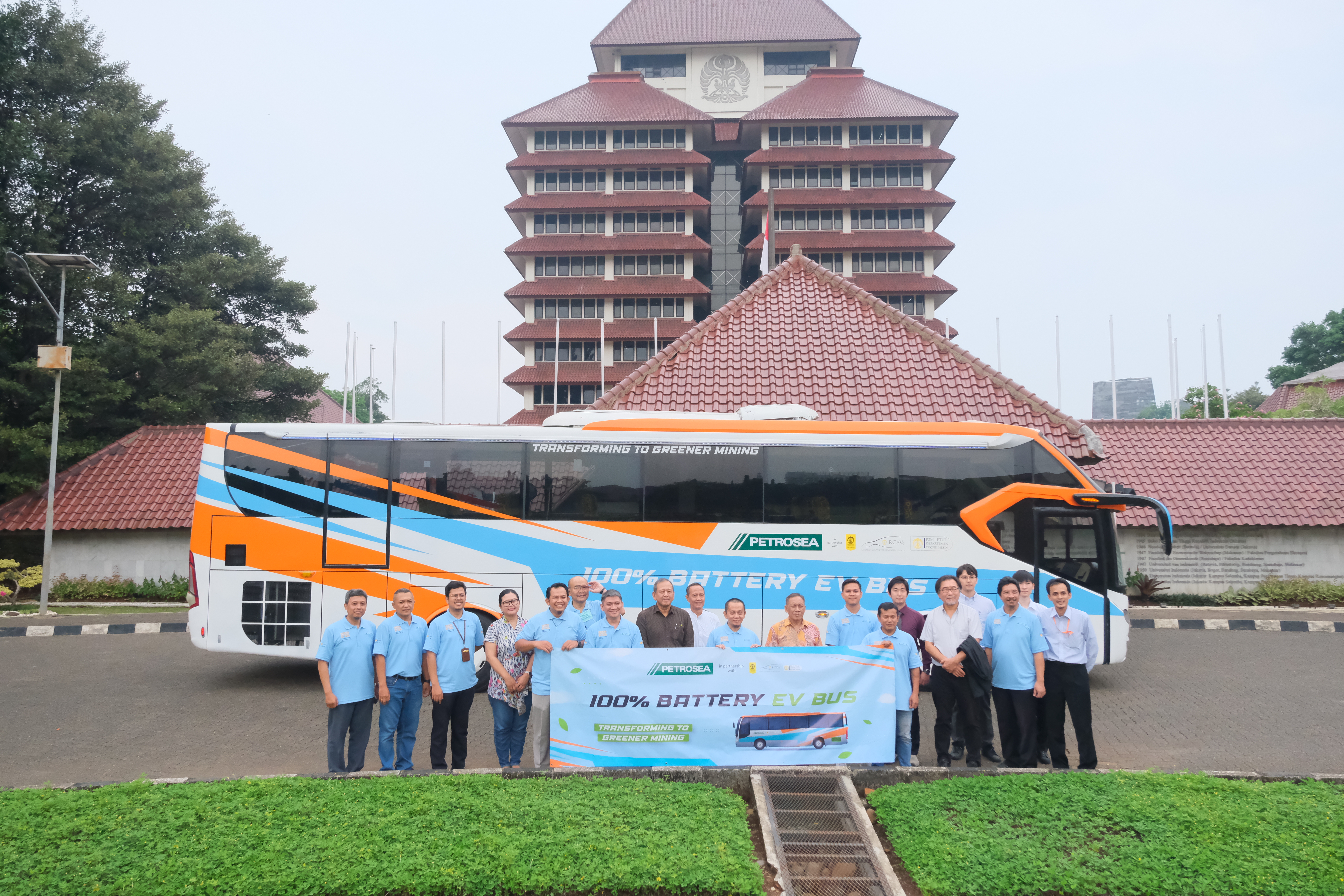Universitas Indonesia (UI), through the Faculty of Engineering (FT) and PT Petrosea Tbk, has successfully converted conventional diesel buses into electric vehicles (EVs). This project was carried out by the Special Task Unit for Community Service (UKK P2M) of the Department of Mechanical Engineering, FTUI, and the Research Center for Advanced Vehicles (RCAVe) at UI. The conversion process of the HINO R260 diesel bus began in 2022 and concluded nine months later. Before its official launch in late November 2023, this electric bus underwent intensive testing, covering 6,000 hours of travel around the UI area.
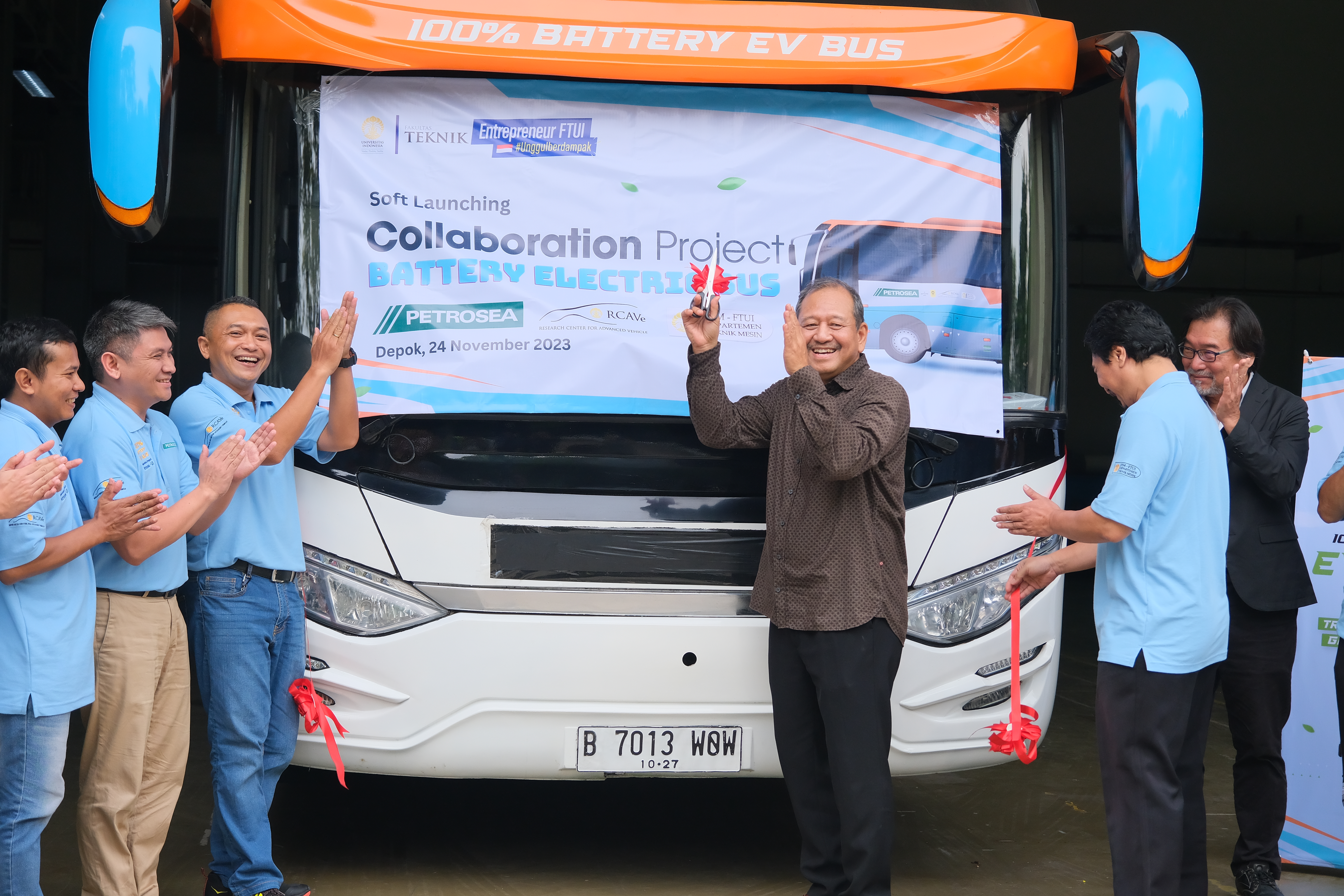
“The collaboration between FTUI and industry, particularly PT Petrosea Tbk, provides us with a valuable opportunity to demonstrate our commitment to reducing emissions through environmentally friendly technology, such as Electric Buses. With this EV conversion, we have also successfully installed the first domestically produced control system in Indonesia. This reflects FTUI’s response to the challenge of Indonesia’s technology independence and supports the green transformation,” stated Prof. Dr. Heri Hermansyah, S.T., M.Eng., IPU., Dean of FTUI.
Meanwhile, Prof. Dr. Feri Yusivar, Director of RCAVe UI, emphasized the strategic and vital economic value of developing national electric vehicles. Therefore, industry self-sufficiency must be built with mastery of automotive technology using local resources and human capital. He also conveyed that the Battery Electric Bus collaboration project is a significant step forward in promoting sustainable transportation in Indonesia, making an important contribution to the national automotive industry.
The conversion of electric vehicles involves reverse engineering, replacing the fuel engine of the vehicle with an electric motor. This reverse engineering process is carried out while ensuring the safety and performance of the vehicle. The RCAVe UI team successfully integrated the electric drive system, considering the construction strength and the centre of mass location of the vehicle to maintain control optimality.
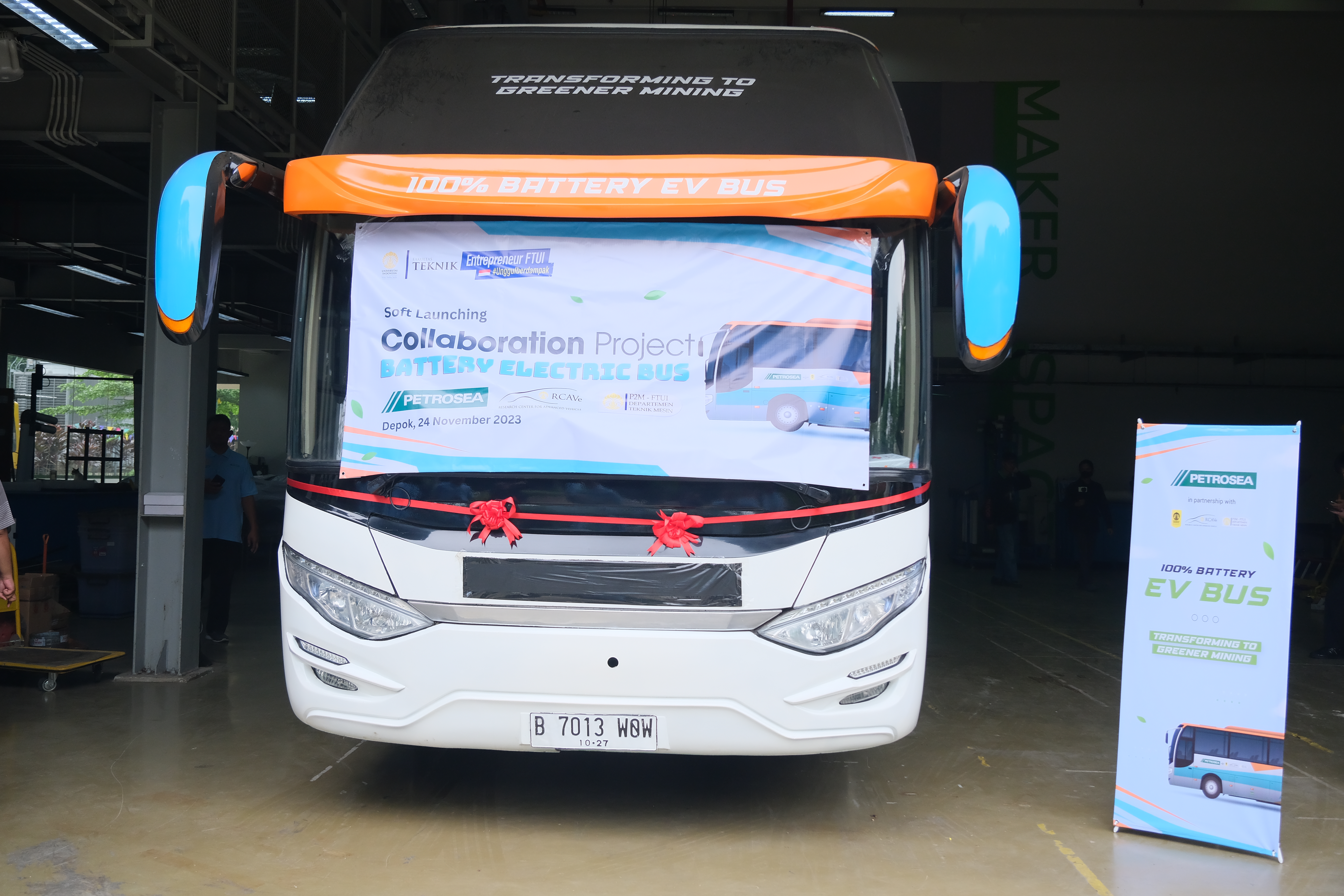
“Refinements were made in several aspects, such as the layout of new components, integration of the electric drive system with the bus control system, and techniques to ensure that the power distribution of the electric motor optimizes braking and turning capabilities. Additionally, converting the bus to remain suitable for road support in Indonesia became the final ingredient of the end product,” said Dr-Ing. Mohammad Adhitya, Vehicle Development Expert FTUI.
The control system on the UI EV Bus is the result of innovation by Dr. Abdul Muis, ST. M.Eng., a Control Expert from the Electrical Engineering Department, FTUI. While converting conventional vehicles to electric vehicles has been ongoing for the past decade, the full integration of EV devices still faces significant challenges. The Petrosea-UI Electric Bus has implemented integrated EV devices with the SAE-J1939 CAN communication protocol, a standard protocol for heavy-duty electric vehicles. However, the main challenge lies in the absence of standard PGN-SPN parameters for this communication protocol. To date, there is no universal integration device that can be applied to various electric vehicles. Integration devices, known as Vehicle Control Units (VCUs) on electric buses or electric vehicles in general, are usually designed specifically for a particular EV device model. In Indonesia, most electric buses still depend on foreign integrators, limiting the capacity for independent development. However, the UI team has successfully achieved independent integration on the Petrosea-UI Electric Bus, enabling the customization of EV devices without relying on foreign expertise.
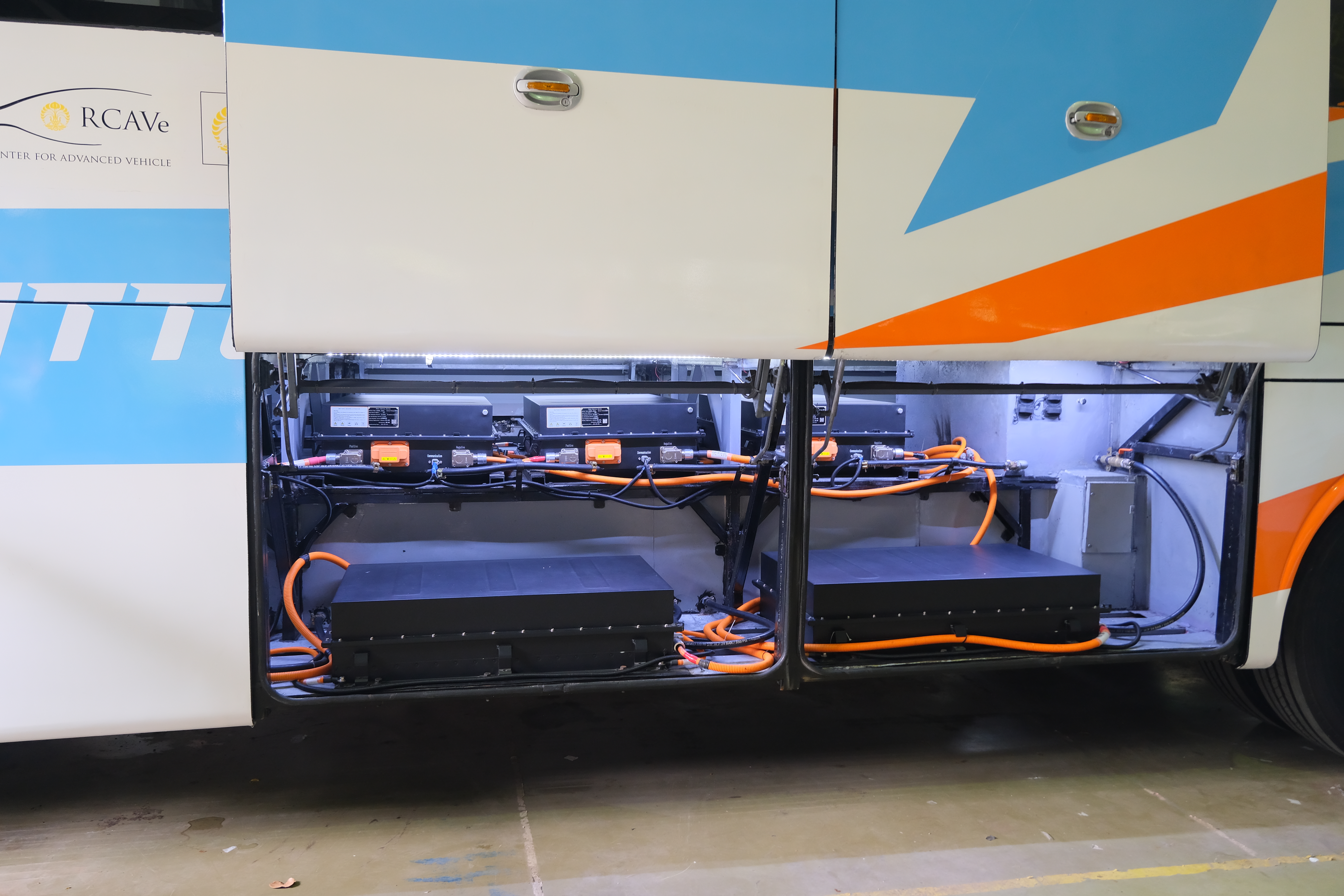
Sahala Sigalingging, ST, MSc., Head of Electric Vehicle (EV) at PT Petrosea Tbk, emphasized Petrosea’s commitment to ESG and decarbonization. “Petrosea is fully committed to Environmental, Social, and Governance (ESG) aspects. The EV initiative is a tangible step in supporting decarbonization, aligning with Petrosea’s 3D strategy (Diversification, Digitalization, Decarbonization). These efforts are part of Petrosea’s process towards net zero emissions, requiring full support and synergy from all stakeholders, both internal and external,” said Sahala.
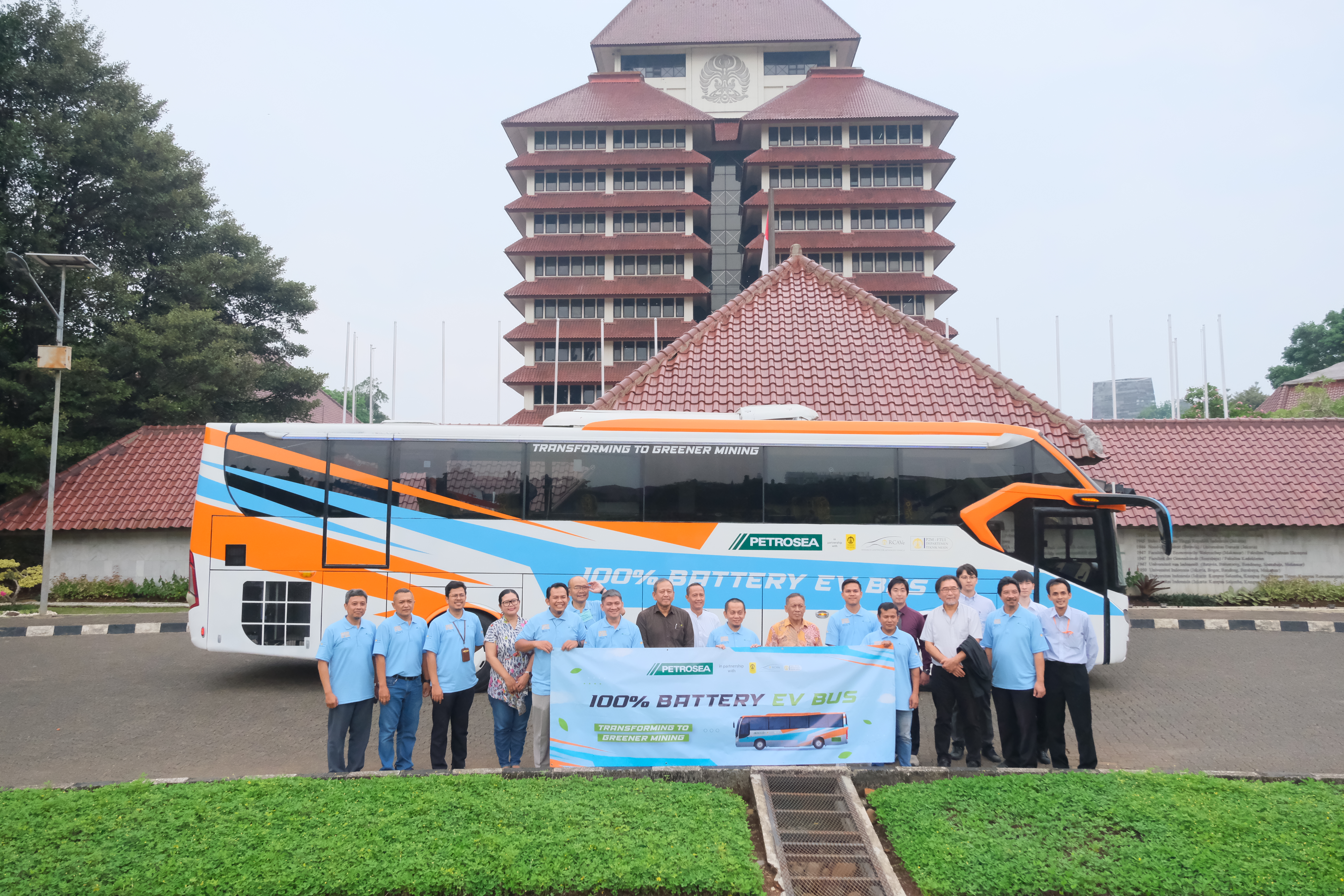
In the current mining industry, the majority of existing equipment still uses fossil fuels, especially diesel. With the successful conversion process resulting from the collaboration between FTUI and PT Petrosea Tbk, it is hoped that this system can be applied to the mining industry in Indonesia. This collaboration is evidence of the capabilities and commitment of Indonesian academics and industry in promoting sustainable innovation. The conversion of diesel buses to electric represents a significant step towards a cleaner and greener transportation future in Indonesia.
***
Public Communication Office
Faculty of Engineering Universitas Indonesia

